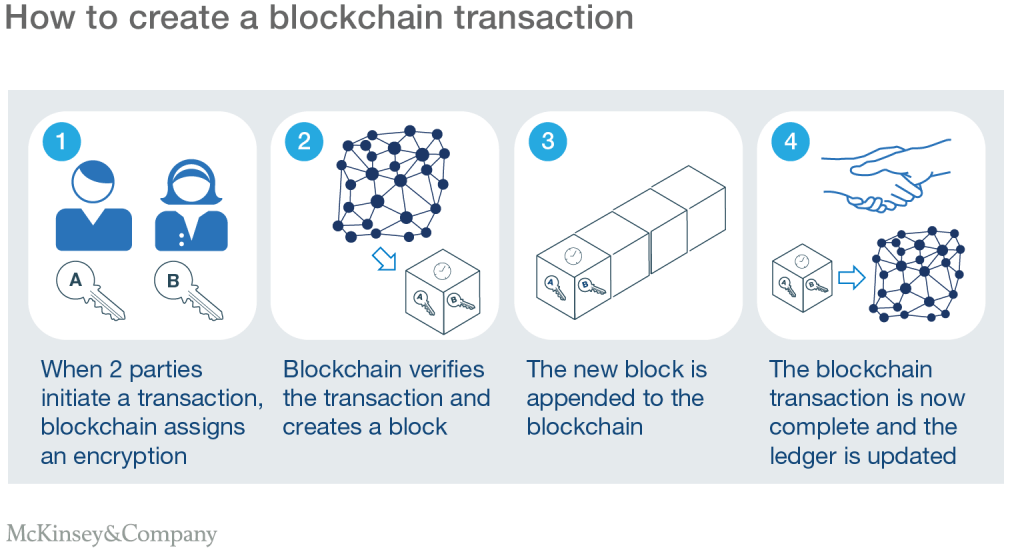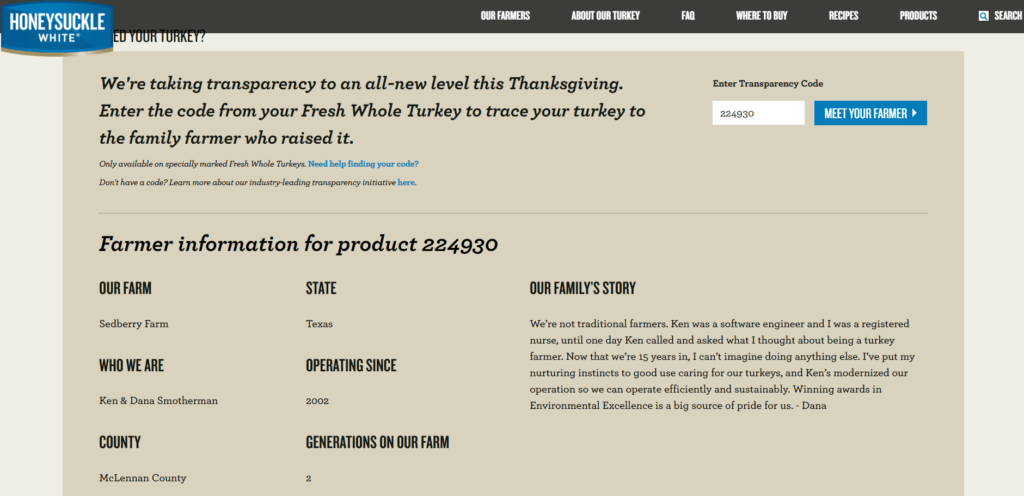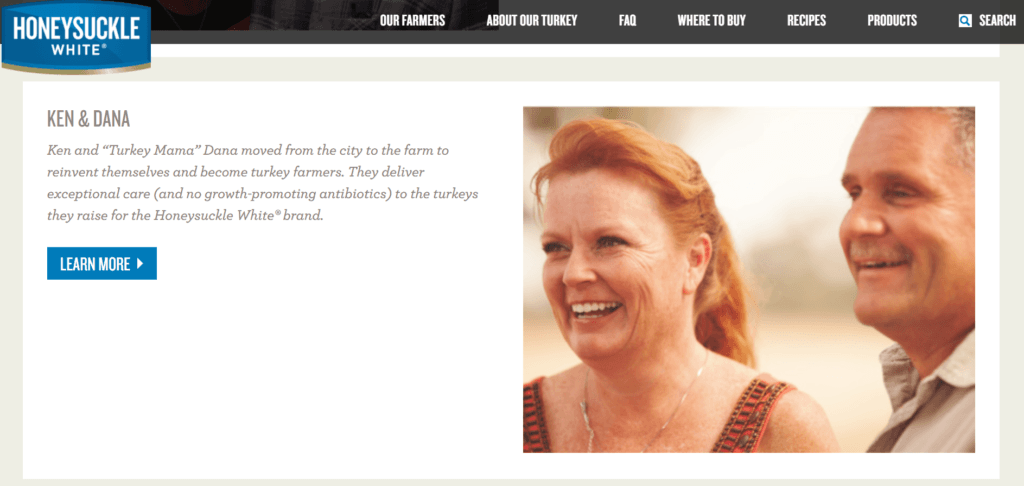Let’s Talk Turkey: Cargill’s Blockchain Supply Chain of The Future

Blockchain digital supply chains can help global food companies like Cargill build consumer trust and drive operational efficiency. This seems like a no-brainer, but the devil will be in the details.
How will Cargill implement blockchain to disrupt how food is delivered from farm to table? A new initiative at Cargill’s North American turkey farms offers a glimpse into the future.
Food supply chains today are increasingly complex, global affairs – the agribusiness titan Cargill ($107.1B revenue in 2016) employs 155,000 people across 70 countries [1]. Cargill’s supply chain starts at the farm, where it buys crops and animal products from a network of 650,000 farmers [2]. The company also handles storage, transportation, and ingredient manufacturing.
Although Cargill’s global footprint is massive, in 2017 scale is no longer as differentiating of a competitive advantage as trust. Several high-profile consumer food scares, such as Chipotle’s 2016 E. Coli outbreak, have led to a breakdown of trust between customers and Big Food companies – only 43% of millennials currently trust them [3]. The source of Chipotle’s E. Coli outbreak was never traced to a single ingredient; the ensuing public humiliation and 60% drop in Chipotle’s stock served as a wake-up call across the industry [4]. In today’s world, Cargill can build trust with a more transparent and traceable supply chain for customers. Consumer trust will flow through to Cargill’s bottom line – a recent poll found that 99% of consumers would pay more for transparent products and that 94% would show brand loyalty to fully transparent companies [5].
So how does Cargill become fully transparent? Supply chain digitalization via blockchain technology is the panacea to their predicament. Blockchain is a cryptographically secure (i.e., unhackable) ledger that permanently captures data inputs in a string of digital blocks that can be viewed by anyone around the world [6].



Recommendations: Cargill should pursue an aggressive global rollout of its blockchain supply chain. Although Cargill is the largest U.S. private company and hence does not face the same quarterly pressure as its public competitors do, they should not sit on their laurels. Blockchain supply chains are the way of the future – companies like Walmart, Tyson Foods, and Nestle have already partnered with IBM on implementing similar blockchain solutions. However, due to the inherent complexity of global supply chains, it would be prudent to focus efforts on implementing its blockchain system on a commodity-by-commodity basis. Let’s get the turkeys plated before diving into the corn.
Key Questions: What information do consumers really want to know about their food? If such information is available on-demand, will we consult the blockchain about our food as normally as we check our Instagram and Facebook feeds?
(Word Count: 778)
Sources:
[1] Cargill, Inc., “Cargill At A Glance,” https://www.cargill.com/about/cargill-at-a-glance, accessed November 2017.
[2] Cargill, Inc., “Company Overview,” https://www.cargill.com/about/company-overview, accessed November 2017.
[3] Deloitte Consulting AG, “What’s On Your Plate?,” https://www2.deloitte.com/content/dam/Deloitte/ch/Documents/consumer-business/ch-en-food-safety-POV-whats-on-your-plate.pdf, accessed November 2017.
[4] U.S. Food and Drug Administration, “FDA Investigates Multistate Outbreak of E. coli O26 Infections Linked to Chipotle Mexican Grill Restaurants,” https://www.fda.gov/Food/RecallsOutbreaksEmergencies/Outbreaks/ucm470410.htm, accessed November 2017.
[5] Kincaid, Erica. “Cargill Launches A Traceable Turkey Program Ahead of Thanksgiving.” SupplyChainDive.com, November 8, 2017, https://www.supplychaindive.com/news/cargill-traceable-turkey-blockchain-food-manufacturing/510396/, accessed November 2017.
[6] Oliver Wyman & Company, “Blockchain: The Backbone of Digital Supply Chains,” http://www.oliverwyman.com/our-expertise/insights/2017/jun/blockchain-the-backbone-of-digital-supply-chains.html, accessed November 2017.
[7] Alike, Knut, et al., “Blockchain Technology for Supply Chains — A Must or A Maybe?” McKinsey & Company, September 12, 2017, https://operations-extranet.mckinsey.com/content/function/Supply+Chain+Management/view/20170912_Blockchain_technology_for_supply_chains, accessed November 2017.
[8] PwC, “Food Fraud Vulnerability Assessment and Mitigation,” https://www.pwc.com/gx/en/services/food-supply-integrity-services/assets/pwc-food-fraud-vulnerability-assessment-and-mitigation-november.pdf, accessed November 2017.
[9] Cargill, Inc., “Homepage,” Honeysucklewhite.com, accessed November 2017.
[10] Cargill, Inc., “Cargill Palm 2020 Roadmap,” https://www.cargill.com/sustainability/palm-oil/palm-2020-roadmap, accessed November 2017.
[11] Cargill, Inc., “Cargill Sets Clear Course for Cocoa Sustainability,” https://www.cargill.com/2017/cargill-sets-clear-course-for-cocoa-sustainability, accessed November 2017.




I’m quite new to block chain, so I found the article fascinating on how block chain works and how it can be applied to food. Given the complex nature of the supply chain and investment costs required to implement block chain, I’d be curious to understand how Cargill prioritizes which product lines to roll-out block chain for first. My hunch is the prioritization is based on a 2×2 matrix of value to the consumer (how much do they care for a given food product where that food comes from) and value to Cargill (what efficiencies do they gain in supply chain operations from block chain). If we consider this framework, is there a limit to the total value block chain can provide Cargill? In other words, are there some product lines that they wouldn’t implement block chain for?
Interesting article about how a very current/relevant technology can potentially affect the food supply chain. While in my opinion, this represents an elegant demand side solution, I do think there are smart contract applications to the supply side as well, particularly in developing countries where infrastructure and payments are underdeveloped. If implemented at scale, smart contracts can allow an end consumers to purchase raw materials directly from farmers (“the owner of a small café can purchase coffee seeds directly from a Kenyan farmer”, https://cointelegraph.com/news/growing-the-garden-how-to-use-blockchain-in-agriculture). This would allow farmers in developing economies who rely on large organizations to sell their production (such as the Coffee Cocoa Board in Cote d’Ivoire – http://www.conseilcafecacao.ci/index.php?option=com_k2&view=item&id=77:coffee-cocoa-board) to cut the middlemen, and improve their economic conditions, if they are willing to do so.
While I do believe such solutions can increase transparency on the supply side as well, questions remain about the potential use of the eventual cryptocurrencies that farmers would receive.
I completely agree, I think as cyrptocurrencies largely remain a mystery to many outside of your top tier financial and agricultural institutions I think that these companies will need to think through how the value created through transparency and automation facilitated by blockchain will flow through to smaller producers espcially those is emerging markets. Additionally, I wonder what bias we may have being US-based in our knowledge of blockchains and what the implications may be on how it will effect international trade since it would allow players to skip the impact of exchanging global currencies.
This is a great article Justin! I read almost every label of items that I pick up in the grocery store. The nutrition metrics like calorie count, fat content, sugars, sodium, etc. is typically the type of information average consumers what to know about. The health conscious consumer base is growing rapidly and I agree with you that consumer are starting to care more about the how their products are made and with what ingredients. Despite the health craze, over 60% of food purchases in America is processed, so I don’t think most Americans are going to do the in-depth research or alter their purchasing patterns based the information transparency the blockchain will provide.
The other thing to consider is will the average consumer even understand the various elements for commodity processing to make an informed purchasing decision about whether the food meets their health standards. I think the blockchain data will matter less for consumers and more for different owners in the supply chain, so that accountability can be determined when there is a bacterial food outbreak or health scare as you mention. To your point about trust, consumers are likely to stay brand loyal when they know companies are being more diligent about process controls to ensure that outbreaks are detected early and corrected swiftly. Chipotle is great counter argument to that because people still eat Chipotle even though there has been a second E.Coli outbreak, which is an indicator that availability of food supply chain information may not matter to consumers.